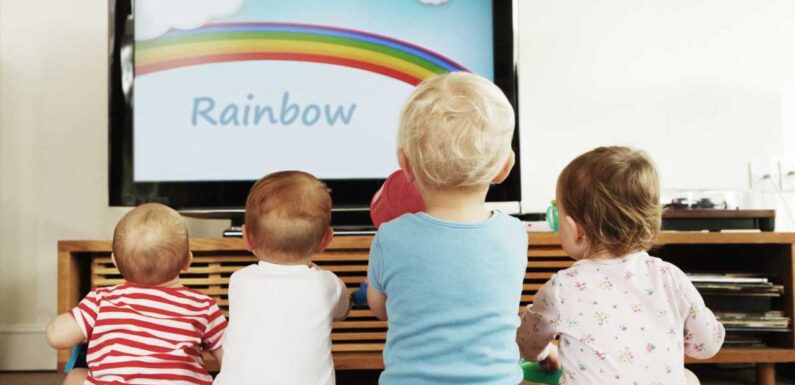
WATCHING screens at the age of one can damage your child’s development, a study shows.
Kids who sat in front of the TV were more likely to have worse speech and struggle to move around at ages two and three, Japanese researchers found.
They tracked 57,980 children to see how screen time affected their ability to walk, talk and solve problems, as well as their social skills.
Dr Midori Yamamoto, of Chiba University, said: “Increased TV screen time from age one negatively affected later development.
“To reduce the negative consequences of excessive media use, health care professionals should recommend social support for parents who tend to rely on the media.”
The National Institute for Health and Care Excellence suggests children should have TV-free days and have a two-hour limit on the time spent in front of screens.
A limited amount of child-friendly screen time can be educational, but it’s important to ensure the content is appropriate for your child’s age, it adds.
Previous studies have shown spending four hours or more a day can increase the risk of developmental delays.
The latest research, published in JAMA Pediatrics, looked specifically at how screen time at age one affected the risk in later years.
Parents were asked how many hours their children spent watching TV, ranging from none to four hours or more a day.
Most read in Health

Millions called to get Covid booster jabs from today – check if you’re eligible

Boy, 1, dies after brain-eating parasite ‘swam up his nose’ at kid’s splash park

Morrisons urgently recalls popular meat product as it contains salmonella

Fury as woke health bosses remove word ‘mother’ from maternity document
They were also asked questions about their child’s development, testing their communication, gross motor — like walking and running — fine motor — like eating and writing — problem solving, and personal-social skills.
Those who spent more time in front of screens had significantly worse communication skills at age two and gross motor, fine motor, and personal-social skills at age three.
Dr Yamamoto said the poor communication could be because of reduced activity in parts of the brain linked to thinking, emotions, personality, judgement and self-control.
On the changes to their ability to walk, she said: “This may be attributed to missing opportunities to learn motor and interpersonal skills by sedentary looking at screens.”
Independent experts warned the study showed an association between screen time and developmental disorders — not that watching TV caused them.
Professor Maria del Mar Sanchez Vera, of the University of Murcia, said: "At these ages, what we know so far is that the issue does not lie with screens but rather in removing the stimuli that babies need at these ages, whether it's due to technology or other factors.
"From my point of view, the key takeaway from the study, as the study itself indicates, is to highlight the importance of social interaction for the development of children."
Source: Read Full Article
